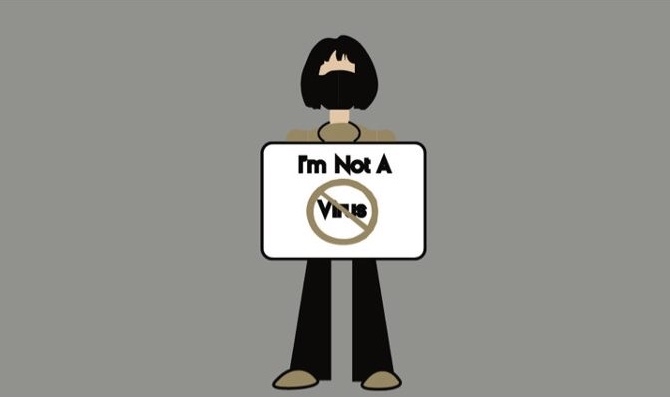Stop Asian Hate
staff writer discusses feelings amid rise in racially-motivated crime
You’ve heard on KC FOX4 NEWS and the Kansas City Star newspaper about numerous anti-Asian attacks. On January 28, in San Francisco, security footage caught 84-year-old Vicha Ratanapakdee being forcefully shoved to the ground by nineteen-year-old Antoine Watson while taking his morning walk. Two days after the tragic attack, he died. Another incursion took place in Atlanta, GA—a shooting that killed eight people, including six Asian women. The shootings are the latest evidence of violence against Asian-Americans living in the U.S., which has increased significantly in the past year in large part due to “racist rhetoric” around the pandemic. This horrified me.
This year, many people are blaming Asians for bringing the virus over, causing a mass of hatred and racism. Several recent attacks have not been charged as hate crimes, fueling protests and outrage among many Asian-Americans. Asian communities being targeted and the numerous cases that are involved with anti-Asian discrimination and xenophobia are increasing globally. Hearing and knowing about the Asian attacks and the rise of hate crimes in America made my blood boil in anger.
It infuriates me that America is supposed to be a place that embraces everyone, immigrant or not.
Here are the questions that I keep asking myself during this problem: Why is it so hard for Americans to designate domestic terrorism and hate crimes? What’s behind the rise in violence? Why are we judging race, ethnicity, and origins? Why can’t we live in a peaceful community?
In my opinion, this is racial prejudice because this shows how race can play a role in violence and prejudice, even if the delinquent does not clearly express a racist intent. Over the past year, we’ve seen a huge outpouring in violent crimes, for reasons criminologists are still trying to figure out. In some cases, Asian Americans were probably caught up in the wave of murder and assault without being specifically targeted.
However, Asian Americans are frequently stereotyped as being meek, compliant, and well-to-do—all the qualities that would make them easy targets. This kind of passive form of racial prejudice can still harm Asian Americans, even if the explicit hatred is not the reason they are being targeted. The Center for the Study of Hate and Extremism at California State University, San Bernardino recently released a fact sheet that claims Anti-Asian hate crimes have spiked by 149% in America’s largest cities during 2020. Though the hate crimes against Asian Americans have been slowly rising since 2016, some evidence claims that the past year’s surge was driven by racists’ reaction to the COVID-19 pandemic. Former President Donald Trump frequently referred to COVID-19 as the “China Virus” which appeared to have strengthened the association of Asians and disease in the minds of his followers on Twitter. His account expressed hate speech blaming the country for the pandemic. This rhetoric punctured into a history of anti-Asian racism and violence in the United States.
Writing and investigating this topic was the hardest thing I’ve ever done. It makes me sad that I, myself, am a sixteen-year-old Asian-American girl, adopted from Guangxi by my loving parents. Hearing all the negative consequences of Asian hate attacks made me feel insecure. Just thinking that my race would put my parents at risk breaks my heart.
I want to put an end to the hate and racism that’s affecting our nation. This story isn’t going to make me run, nor change my Asian American heritage and ethnicity. If people still judge me, it doesn’t matter. Just because I come from a different country does not mean I am an evil person. My race makes me part of who I am. No one can change that.

Mena Walker is a senior and this is her second year on staff. In school, she’s involved in NHS, Varsity Tennis, Galley Club, and Book Club. She is...




